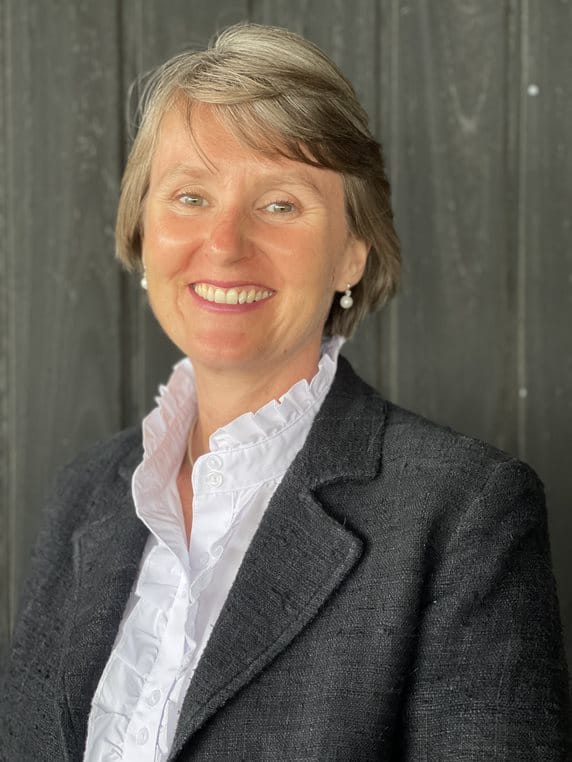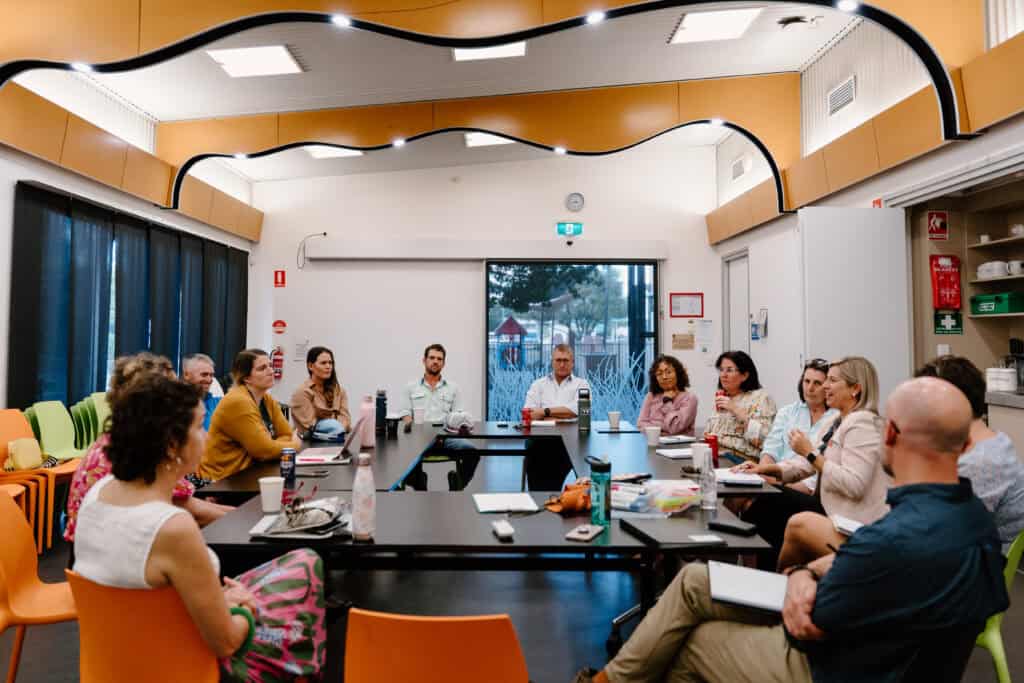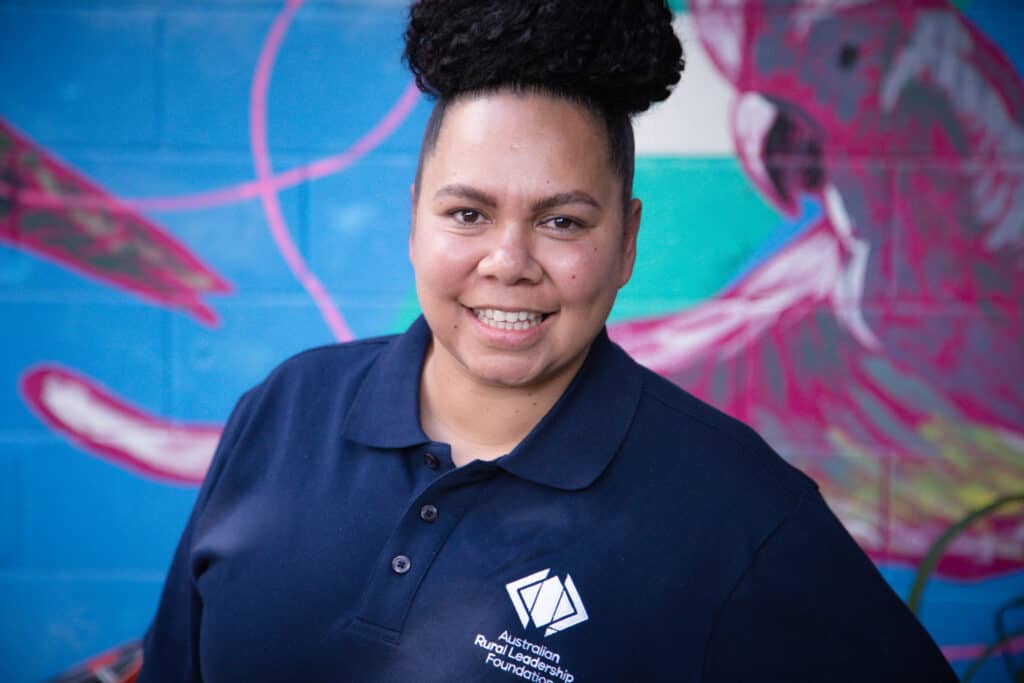Angelique Bennett was deeply affected by the closure of the Savernake Primary School in 2021.
Like all schools in regional Australia, the small three student primary school was a focal point for those in the surrounding farming community.
But as the school’s principal, Angelique was hit particularly hard by its closure. With her partner Stuart serving as its Parents and Citizens Association president, the family was entwined in the school’s existence.
Its closure left her unsure of her role within the community.
However, just as she was doubting her desire or capacity to lead, the opportunity to participate in the Leading Australian Resilient Communities program appeared and provided direction.
“The LARC program came at the ideal time: I’d had 12 months to heal,” Angelique said.
The program content resonated with her, providing opportunity for personal growth, the development of leadership skills, gaining of knowledge and exploration of opportunities for change within her own backyard.
“There was no use wallowing in the past…it was the right time to apply for LARC, and it rolled on from there. It was time to step up,” Angelique said.
She said she hoped that LARC would help her build her own capacity within the adaptive leadership space, establish connections and network with other leaders from across the NSW Rivers to the Plains.
The LARC program did provide those opportunities, but it was another aspect of the program that impressed her the most.
It was cross-border engagement and the fact that the Rivers to Plains cohort encompassed groups from north and south of the Murray River that she particularly valued.
“I am not sure if this was done by accident or design, but either way I am extremely grateful and as a cross-border resident, this has been invaluable,” Angelique said.
Savernake is within the Federation Council, which lies on the banks of the Murray River, Lake Mulwala and Lake Urana, in southern NSW, about 560-600 kilometres south-west of the Sydney CBD, 350-400 kilometres south-west of the Canberra CBD, and 300-380 kilometres north of the Melbourne CBD.
According to the council itself, the region is “…within easy travelling distance to the regional cities of Albury, Wodonga, Wangaratta, Wagga Wagga, and Shepparton…”.
It is the close proximity to larger centres that complicates small community survival.
“In our area, many jobs on council, for example, are filled from outside of the area. The council employees don’t live in the community, they drive in and drive out…from places like Albury 30 minute away,” Angelique said.
“This means locals are missing out on the chance to further develop skills and have input in their own community,” she said.
“I would like to upskill those within our rural communities rather than continually seek to fill positions from further afield.”
The cross-border initiative was not the only LARC high point. As part of the program, she was able to apply her experience in education to work with a group on the Youth Engagement and Wrap Around/Education Initiative.
The initiative was formed out of concern for the education of young people. Not just in an academic sense, but in terms of the acquisition of skills that would pave their way forward in life.
The group identified a mindset shift towards learning among young people as a consequence of the Covid pandemic, with homeschooling and digital dependence identified as contributors to declining NAPLAN scores, a reliance on digital technology and online services, and a lack of essential life skills.
The group plans to address this through a hands on, practical approach, consulting young people to identify problems that need to be dealt with, and to ensure interest and success.
“More often than not, we feel a sense of urgency to ‘solve’ an issue or a problem rather than acknowledge that we do not know what we do not know,” Angelique said.
“When we are exploring complex problems and issues within society, it is imperative that we approach the source of the problem rather than developing a perceived solution. In our case, until the children and young adults are seated at the table, we will not truly know what the issue is…if indeed there is one.”
The nature of the project would be determined by the young people who project co-design it, but plans are to trial it as a pilot at a local football/netball club in the northern Victorian town of Yarrawonga.
“As we unpacked the topic it became evident that all meaning is contextual. The more we added ‘what ifs’ the more the context changed resulting in the meaning of our initiative changing,” she said.
Angelique said that the group’s coach, Gary Saliba, introduced the use of the Cynefin Framework as an effective way of problem solving, and encouraged engagement in reflective practice.
“The learning was not about solving our CAI, rather it was about our journey navigating the process,” she said.
“As a group, we explored the role of leadership and discovered that there was not one individual that stepped up into the role of leader, but rather we took on a Distributed Leadership Model.”
She said that by working together, participants were encouraged to balance an environment of trust and confidence, then introduce an issue to solve.
In the wake of the LARC program, Angelique said she viewed ‘community resilience’ as an individual or a group of individuals having the capacity to cope with change, moving forward and asking, “how could we do better next time?”
“I would like to contribute by helping the community to see the opportunities (rather than always seeing challenges) in new and useful ways in order to make a difference,” Angelique said.
Though concerned about difficulties involved with fixing broken parts of the system, Angelique was positive about the impact of committed people.
“The opportunities for growth within any rural community are endless and Federation Council is no different. In an ideal world, the vision that I hold for our community primarily involves upskilling those who live here,” Angelique said.
“I am excited by, passionate about and proud of the community in which I live,” she said.
“Encouraging our young children and adults that ‘yes, it is a wonderful idea to spread your wings and gain further education, however it is important to return to the nest, plant your roots in home turf, water and watch the bounty grow.”
The LARC leadership program reawakened Angelique’s desire to step-up and lead within her community, particularly in the area of youth engagement and development.
She said that the next chapter in her leadership journey will be to follow her own advice “you cannot be what you cannot see”.
“Too often I look to others for guidance rather than searching within myself and exploring my own skillset. I have a myriad of skills that now need to be laid on the table and shared with those around me,” Angelique said.
“As a community leader, I hope to establish, develop, lead and leave a legacy for children and young adults that adapts to change as and when required. I am hoping to develop a program that is sustainable and not reflective of who is in the driver’s seat but continually meets the needs of the target audience,” she said.
“I envisage sharing with those around me the sense and importance of belonging and that diversity of thought is fundamental to success whilst also acknowledging that it is safe to fail – failure leads to greater success.”








